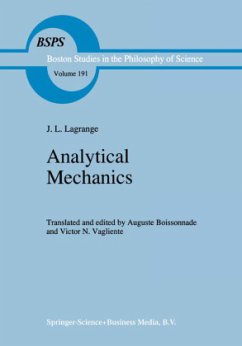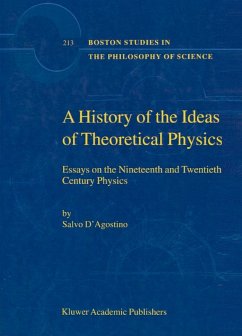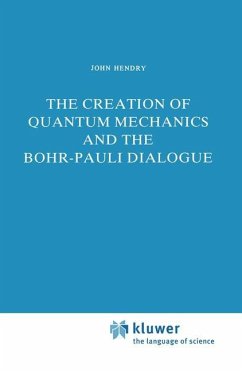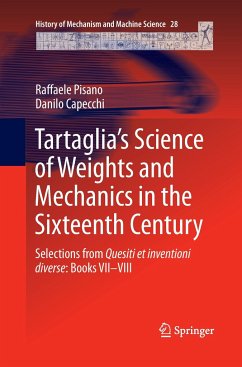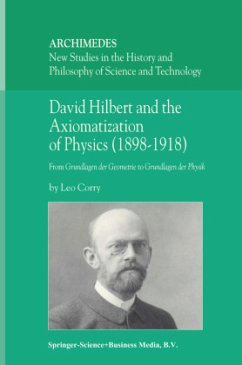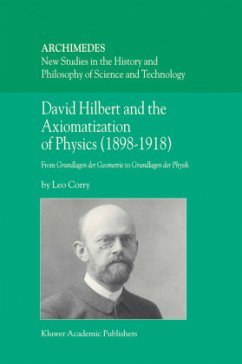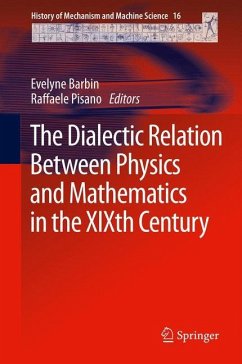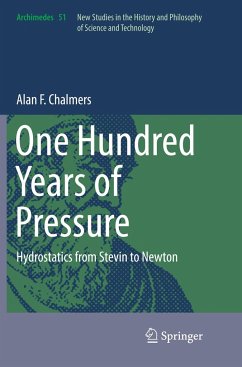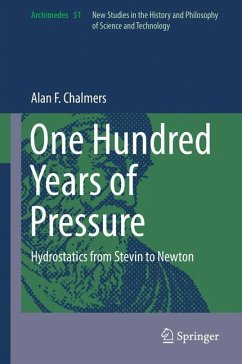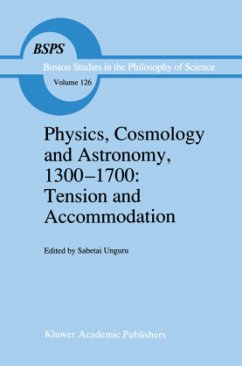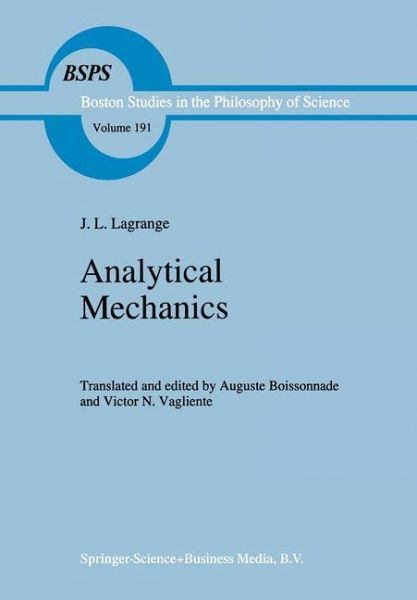
Analytical Mechanics

PAYBACK Punkte
125 °P sammeln!
to the English translation of Lagrange's Mecanique Analytique Lagrange's Mecanique Analytique appeared early in 1788 almost exactly one cen tury after the publication of Newton's Principia Mathematica. It marked the culmination of a line of research devoted to recasting Newton's synthetic, geomet ric methods in the analytic style of the Leibnizian calculus. Its sources extended well beyond the physics of central forces set forth in the Principia. Continental au thors such as Jakob Bernoulli, Daniel Bernoulli, Leonhard Euler, Alexis Clairaut and Jean d'Alembert had developed new concepts and me...
to the English translation of Lagrange's Mecanique Analytique Lagrange's Mecanique Analytique appeared early in 1788 almost exactly one cen tury after the publication of Newton's Principia Mathematica. It marked the culmination of a line of research devoted to recasting Newton's synthetic, geomet ric methods in the analytic style of the Leibnizian calculus. Its sources extended well beyond the physics of central forces set forth in the Principia. Continental au thors such as Jakob Bernoulli, Daniel Bernoulli, Leonhard Euler, Alexis Clairaut and Jean d'Alembert had developed new concepts and methods to investigate problems in constrained interaction, fluid flow, elasticity, strength of materials and the operation of machines. The Mecanique Analytique was a remarkable work of compilation that became a fundamental reference for subsequent research in exact science. During the eighteenth century there was a considerable emphasis on extending the domain of analysis and algorithmic calculation, on reducing the dependence of advanced mathematics on geometrical intuition and diagrammatic aids. The analytical style that characterizes the Mecanique Analytique was evident in La grange's original derivation in 1755 of the 8-algorithm in the calculus of variations. It was expressed in his consistent attempts during the 1770s to prove theorems of mathematics and mechanics that had previously been obtained synthetically. The scope and distinctiveness of his 1788 treatise are evident if one compares it with an earlier work of similar outlook, Euler's Mechanica sive Motus Scientia Analyt 1 ice Exposita of 1736.





